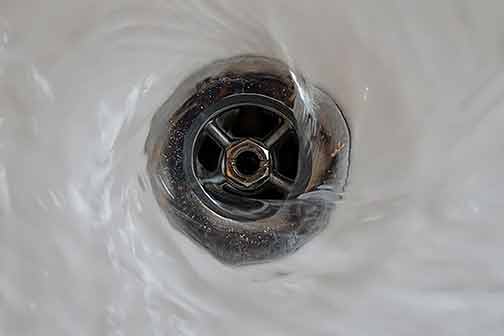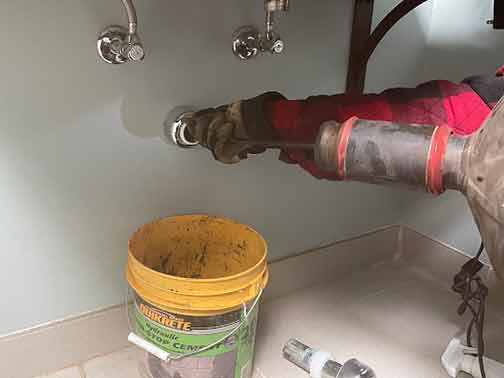6 Ways to Prevent Drain Clogging – Keeping the drains in your home free of materials that block them is not the most carefree way to use your home’s plumbing but it is certainly the least expensive. We like to think of clogs and blockages as an inevitable consequence of having modern plumbing in the house, says Brentwood Square Management Inc. But most clogs happen as a result of the way we use the plumbing; they are completely avoidable.
When drains are kept free of grease, food waste, soap scum, and materials that can block them, the benefits are manifold. Not only are you relieved of the stress of having to deal with plumbing emergencies at the most inopportune times, but the plumbing is also kept in an overall better condition. The final outcome is that you will spend less money on plumbing issues.
If you are looking for ways to maximize the use of your plumbing by minimizing the incidence of blocked drains, this post will help you. Below are simple steps you can implement today to make your plumbing system healthier and more efficient. Some of the tips are preventive steps you can take to avoid clogs; others are simple solutions for dealing with minor clogs.
6 ways to prevent clogged drains
Watch what you pour down the kitchen drain
As a first step, be careful of what you allow into the drains. Most drain clogs are the results of letting seemingly harmless stuff get into the drain. Some of the items or materials that should never go into the drain include:
Coffee grounds and eggshells
If your kitchen has a waste disposal unit, eggshells can damage the blades and their membrane can impede grinding. Once inside the drains, powdered eggshells will settle at the bottom of pipes and compound existing clogs. Coffee grounds will mix with oil and grease to form sludge inside your pipes.
Cooking oils, grease, and margarine
All oily materials should never go into your drains. This includes butter, mayonnaise, margarine, leftover fats, oils, and grease. If these find their way into the drain, they will mix with debris inside the pipes, line the sides of the drain, and trap solid materials moving through the pipe.
Starchy foods
Rice, pasta, potato skins, and flour should not go into the drain. These materials will swell to many times their original size when they get into the water. Secondly, because they are starchy, they will stick to the surfaces of the pipes and prevent the free flow of water through the drainpipes.
Protect your bathroom drain
As with the kitchen drain, you must be careful with what you allow into your bathroom drains. Even things as ordinary as soap or so-called flushable items can clog your bathroom drain. Here are steps you can take to keep the bathroom drain from getting clogged.
Use drain stoppers
Make sure there are drain stoppers, grates, or screens over drain openings in the sink, shower, and bathtub. These will catch hair, soap scum, and other things that can cause problems inside the drain. To retain their effectiveness stoppers, grates and screens should be cleaned frequently.
Brush your hair before shower
To reduce the risk of hair getting into the drain, brush your hair before you get into the shower. Another step to minimize the risk of hair getting into the plumbing is to bathe pets outside instead of in the bathroom. But if you must use the bathroom, cover the drain with a towel first.
What to do when clogs happen
The following steps will help you get rid of minor clogs:
Flush with hot water
If possible, run hot water through your kitchen sink after every use. This simple step will keep the oils in food waste running, instead of congealing and building up on the inside of your pipes. For bathtubs, fill them with warm water and then remove the plug to the water drain out. Do this weekly.
Clean with baking soda and vinegar
Baking soda is a great cleaning agent and an amazing deodorizer. Throwing a handful of baking soda into the drain, followed by hot water will help to clear the drain pipes. You can also do this with vinegar. Pour a cup of vinegar into the drain and leave it for 30 minutes. Afterward, pour some hot water into the drain.
Use vinegar and salt
If after you use vinegar and baking soda, you still have problems with clogging; make a mixture of one part vinegar to one part salt. Pour the mixture into the drain and let it foam inside the pipes for 30 minutes before pouring very hot water into the drain.
Call a professional plumber
These remedies may not work if the clog is located deep inside your drain. If the issue persists after you have tried the above solutions, it is time to have a local plumber look at the problem. While the plumber is at your home, you can also have them do a general check of your plumbing system to prevent future problems.

